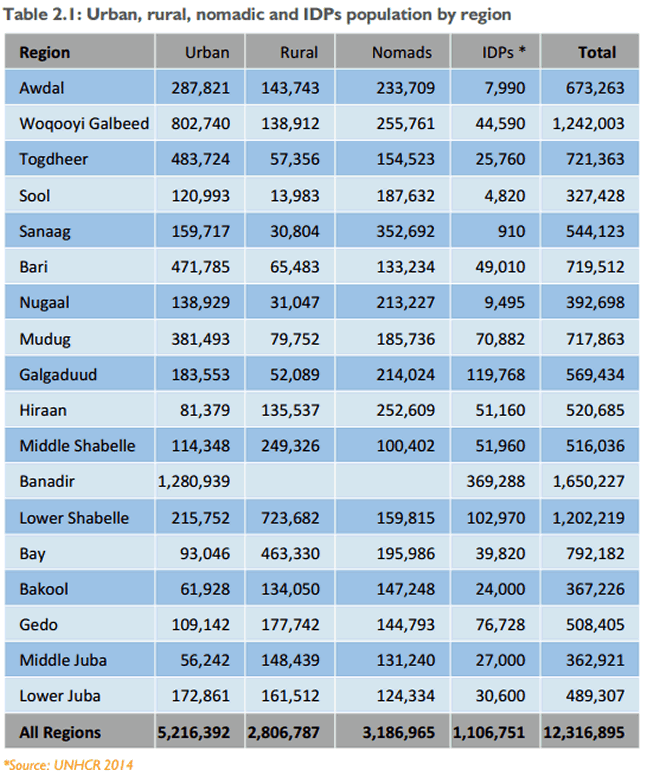
After decades of war in the horn of Africa nation, Somalia’s government has unveiled a new Population Estimation Survey data, paving the way for an official 2016 census in a country where militants still control large swathes in Somalia.
The estimation of the Somali population in over four decades is yet another sign that despite challenges Somalia moves beyond violence. According to the survey issued on Tuesday, three-quarters of Somalis are below 30 years, and around 46 percent of the population is below the age of 15.
“In deciding to hold a Population Estimation Survey (PESS) 2013-2014, two years before the proposed 2016 official census, we were acting upon our critical need to obtain basic information and bridging the information gap, so that our plans should be based on the real situation. said said Abdirahman Aynte, Minister of Planning and International Cooperation.

Buoyed by the new finding, Somalia’s government says that the newly collected information will enable the authorities to better design the next phase of this work, which is official census.
“The completion of this survey is a historic event for the Somali people. It gives the Somali authorities and us international partners a much better understanding of how many schools are needed for school-aged children, where to build hospitals, and what kind of services the people around the country will need,” said Philippe Lazzarini, the United Nations Resident Coordinator for Somalia.
Despite questions on the credibility of the new survey, the government said that in the near term, data that has been collected but still needs to be analyzed also has the potential to provide information on a range of socio-economic realities, including the use of basic social services such as education, water and sanitation, occupation, mobility and migration patterns.
According to the survey carried out between October 2013 and March 2014 is targeted 250,000 households in urban, rural, nomadic settings and camps for the internally displaced people.
The survey provides crucial information on the size, gender and age of Somali citizens, as well as how they are distributed. It also determines how many Somalis live in urban and rural areas and camps for the internally displaced, and how many live nomadic lifestyles.
The development follows an another initiative by UNFPA which took the lead to organize Population Estimation Survey of Somalia (PESS) following a request from the United Nations Country Team (UNCT). The PESS was seen as a first important step and as an instrument to enhance statistical capacities inside Somalia and provide soundly accurate, reliable, credible and accepted indicators for more specific follow-up surveys.
